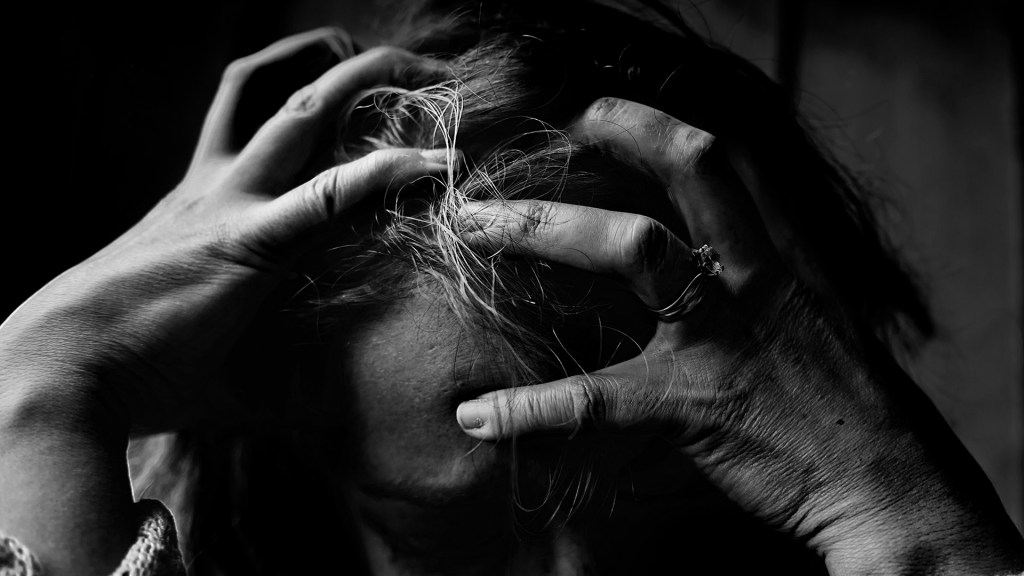
Experiencing symptoms of a panic attack for the first time can be scary and confusing. Know the difference between an anxiety attack vs heart attack.
If you experience pain in your chest accompanied by shortness of breath, you may immediately become concerned that you are having a heart attack.
However, these are also common symptoms of a panic or anxiety attack. Knowing the difference can make the crucial difference between life and death.
Here are five important facts to consider in weighing the question: anxiety attack vs heart attack?
1. Anxiety Attack Vs Heart Attack: The Symptoms are Similar
It is true that in determining anxiety attack vs heart attack, the two conditions share many similar symptoms.
Both attacks may entail the following:
- Pain in the chest area
- Shortness of breath
- palpitations
- nausea or vomiting
- sweating
- fainting
- upper body pain
To make things even more confusing (and anxiety-provoking), symptoms of heart failure can include anxiety!
If you believe that you or your loved one is actually experiencing heart failure, you should go directly to an emergency room.
A trained physician will often be able to tell right away whether it is a heart attack or not.
Those who have a history of heart disease or have suffered heart failure before should contact a doctor right away if they are experiencing these symptoms again.
2. Women Are At Special Risk
The Anxiety and Depression Association of America states that women’s symptoms of heart disease are often mistaken for anxiety. This places them at a higher risk of not getting the medical attention they require.
Many people seem to mistakenly associate heart disease with men and anxiety with women. However, these stereotypes are dangerous and misleading.
A female having a heart attack will also experience chest pain, plus she is more likely to also have shortness of breath, nausea and vomiting and other pains in areas like the back or jaw.
It’s important not to assume that one gender is more likely to experience an anxiety attack vs. heart attack. Men are just as vulnerable as women to the same stressors that cause panic attacks: trauma, divorce and relationship issues, grief and loss.
3. Unusual Symptoms to Watch Out For
Fainting is an important sign that the attack in question is a heart attack. Generally, anxiety attacks do not cause a loss of consciousness.
Usually, if someone having an attack and is able to calm down their breathing, their other bodily symptoms will also abate.
Unconsciousness, on the other hand, does not just go away. Call 911 immediately if someone suffering these symptoms also loses consciousness.
On the other hand, some symptoms are only associated with anxiety attacks. Numbness or tingling extremities are not usually associated with heart failure.
If someone is feeling pins and needles in their limbs, this may indicate they need to seek help for a panic-related disorder.
Other physical signs of a panic attack include tightness in the throat or feeling. like you are choking on something. Panic can also cause your knees to buckle or give way.
These signs usually happen with panic attacks but do not usually signal a heart issue.
4. Which Came First: the Anxiety or the Palpitations?
Doctors will seek the origin of the symptoms which determine anxiety attack vs heart attack.
Because anxiety can lead to heart problems, a physician will ask whether something worrisome happened to provoke the rapid heart rate?
Or was it the other way around?
An irregular heart rhythm or arrhythmia can actually make a person feel anxious. But a fast or irregular heart rate may not be caused by panic but by a physical anomaly.
People with these issues should undergo heart monitoring to determine the cause of their symptoms. Luckily, many modern smartphones have applications which will allow you to easily monitor your daily heartbeats for signs of irregularities They will also allow you to see what affects the rhythm.
If an irregular heartbeat does not seem to be affected by external triggers like a call from the boss or a fight with the wife, the cause may be physiological.
If it is a cardiac problem instead of a psychological one, there are medical procedures like ablations which can help.
5. Both Kinds of Attacks are Treatable
If you realize that you are suffering anxiety, tightness in the chest, shortness of breath and feelings of fear, do not give up hope. There are many suitable treatments for men and women who suffer from crippling anxiety.
Some people find relief through changing their dietary intake, such as by reducing caffeine and sugar. Symptoms may also be exacerbated by other medications being taken for other conditions, so cutting those out or replacing them may help.
Some therapists may prescribe various medications such as antidepressants or anti-anxiety pills, also known as benzodiazepines.
Talk therapy is frequently very successful in treating anxiety attacks.
Many people find numerous benefits from counseling. A psychologist can provide an open, honest and safe forum to discuss issues from the past or present which may be causing you distress.
He or she can also help you build coping skills and strategies which can prevent panic attacks before they happen, and show you how to deal with the many triggers which cause emotional upheaval.
Once you determine whether the cause of your attacks is cardiac or psychological, you are on well your way to finding the best type of help to prevent future episodes.
Panic Attack vs. Heart Attack: Know the Difference
It is critical to first diagnose what is causing your physical and emotional distress. Scan the outward symptoms of your own body (or the person who is suffering).
Check for any exterior triggers or indications of an emergency cardiac situation (such as fainting).
Once a heart attack has been ruled out, seek help from the professional field most suited to handle the condition in question.
If the heart palpitations and other issue seem to arise from an internal physical cause unrelated to emotional stress, find a cardiologist.
If, on the other hand, the symptoms arise from emotional triggers, you may need to seek help from a licensed counselor.
There is no need to suffer in silence: help is available. If you need more information on how to cope with panic attacks and stress, contact us.


